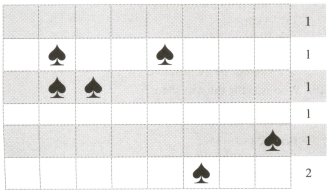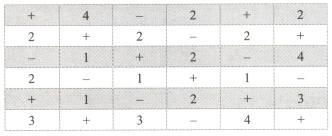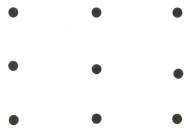Nishit K Sinha Solutions for Chapter: Introduction to Logical Reasoning, Exercise 1: Practice Exercises
Nishit K Sinha Logical Reasoning Solutions for Exercise - Nishit K Sinha Solutions for Chapter: Introduction to Logical Reasoning, Exercise 1: Practice Exercises
Attempt the free practice questions on Chapter 1: Introduction to Logical Reasoning, Exercise 1: Practice Exercises with hints and solutions to strengthen your understanding. Logical Reasoning for CAT solutions are prepared by Experienced Embibe Experts.
Questions from Nishit K Sinha Solutions for Chapter: Introduction to Logical Reasoning, Exercise 1: Practice Exercises with Hints & Solutions
You are running in a marathon and you overtake the person in second place, what position are you now in?
Tree-Tent is a logical game (similar to minesweeper) in which the aim is to identify all tents in the grid. Each tree is exactly connected to only one tent. A tent can be found in a horizontally or vertically adjacent square of a tree. The tents are never placed adjacent to each other, neither vertical, horizontal, nor diagonal. The numbers outside the grid give the total number of tents in the corresponding row or column. A tree might be next to two tents, but is only connected to one, and vice versa. Find all the tents.


Find the highest total - you can only move up or right - using the mathematical signs coming on the way.

During a recent police investigation, IG Khan was interrogating five criminals - A, B, C, D and E - to try and identify who is the culprit. Below is a summary of their statements:
A: it wasn't E
it was B
B: it wasn't C
it wasn't E
C: it was E
it wasn't A
D: it was C
it was B
E: it was D
it wasn't A
It was well known that each suspect told exactly one lie. Can you determine who the criminal is?
A bank customer had in his account. He then made withdrawals, totalling . He kept a record of these withdrawals, and the balance remaining in the account, as follows:
| Withdrawls (₹) | Balance left (₹) |
When he added up the columns as above, he assumed that he must owe to the bank. Was he right?
Can you draw exactly straight lines that pass through ALL spots, without removing your pen from the paper?

In a football syndicate, the winnings amounted to . There were more than people in the syndicate but less than . Each won exactly the same number of rupees and no paise were involved. How much did each win?
If yesterday was Saturday's tomorrow and tomorrow was Wednesday's yesterday, what day would it be today?
